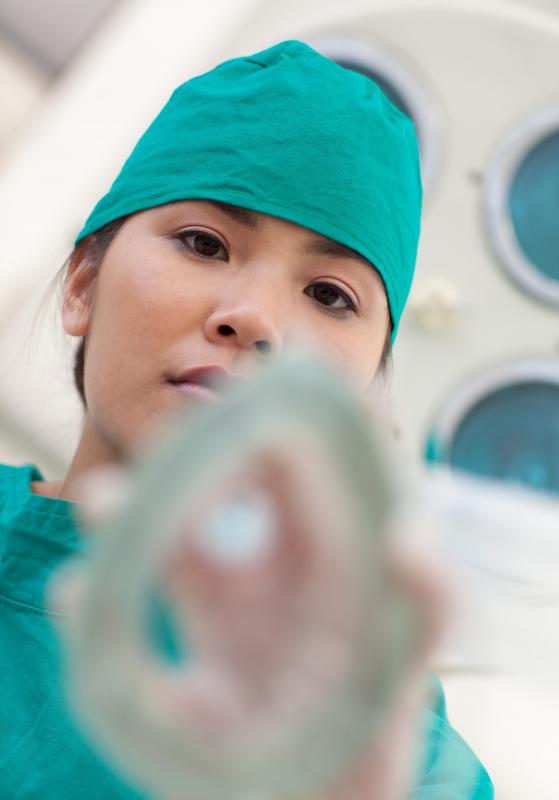At WiseGEEK, we're committed to delivering accurate, trustworthy information. Our expert-authored content is rigorously fact-checked and sourced from credible authorities. Discover how we uphold the highest standards in providing you with reliable knowledge.
What is Dental Anesthesiology?
Dental anesthesiology is a dental specialty that trains dentists in how to safely provide patient sedation. For many patients, the majority of dental procedures, including cleaning, sealants, cavity removal, and fillings, can comfortably be performed during a regular office visit. Dentists will often use a local numbing agent to minimize patient pain, but patients can usually be awake and alert. The same does not always hold true for small children or people with disabilities, many of whom require complete sedation in order to be treated. Sedation is also usually required for more invasive dental procedures like oral surgery.
The goal of dental anesthesiology is to manage and reduce patient pain through carefully administered medication. A general anesthetic usually renders a patient completely unconscious for a period of several hours, while local anesthetics serve to completely numb one portion of the body, usually the face and mouth in dental treatments. In lower doses, general anesthetics can also be administered to relax a patient. Most of the time, nitrous oxide, more commonly known as “laughing gas,” is used for this purpose.

In most countries, dental anesthesiology requires an extensive training program on top of the schooling already required to become a dentist. Candidates for dental anesthesiology must usually already be certified as dentists to qualify for anesthesiology programs. Most of the time, certification comes in the form of a dental rotation: dentists spend a certain amount of time studying under practicing anesthesiologists, and must participate in a dedicated anesthesiology round of classes. They must usually also pass an exam, and fulfill regular re-certification and continuing education requirements. Sometimes dentists will enter into the anesthesiology specialty right away, while others will spend some time in general practice before going back to school to earn dental anesthesiology credentials.

Dental anesthesiology is a tightly regulated specialty in large part because of how precise and specific its doctors must be. Calculating the correct dosage of dental anesthesia drugs depends on the patient’s age, body mass, and blood density, among other factors. Too much anesthetic could lead to neurological damage or permanent coma, while too little could cause the patient to wake up or feel pain mid-procedure. Anesthesiology usually requires constant vigilance and drug monitoring, from the beginning of the procedure to the end.

Most of the time, a dentist who becomes a dental anesthesiologist devotes the entirety of his practice to anesthesiology. Dental anesthesiologists usually work with and for other dentists in general practice, performing anesthesiology treatments on an as-needed basis. In most places, dental anesthesiology is one of the most lucrative dental specialties, followed closely by dental radiology.
AS FEATURED ON:
AS FEATURED ON:













Discuss this Article
Post your comments